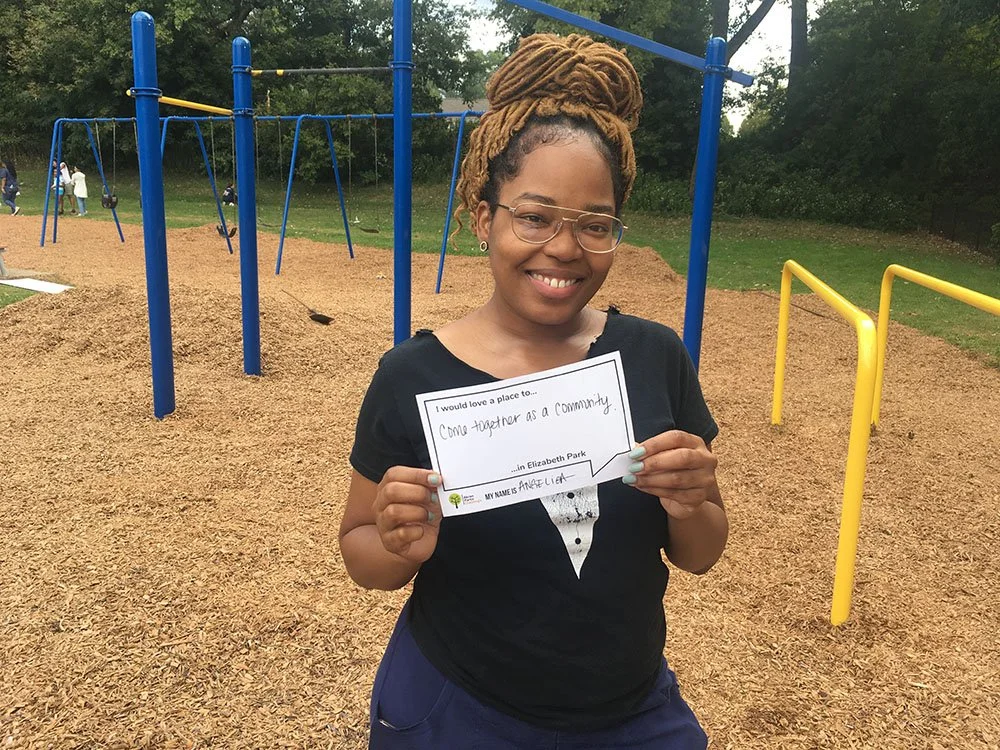The Akron Food Forest Initiative
As part of the Akron Parks Challenge in 2019, a number of community partners came together to support the Akron Parks Collaborative's efforts to restore Elizabeth Park and re-activate Akron's Cascade Valley neighborhood.
The Akron Community Foundation, the Cascade Locks Park Association, the Community Builders, the Big Love Network, the Living Water Association (United Church of Christ), the Akron Parks Collaborative, and the Friends of Elizabeth Park collectively invested more than $150,000 in the first year.
In 2020, the murder of George Floyd in the midst of the COVID-19 pandemic raised much-needed awareness of the intersection between racism and public health. These events helped underscore the importance of restoring public green spaces like Elizabeth Park.
In partnership with Wild Woman Designs, a local business that specializes in community engagement, restorative landscape design, and health equity, to develop a participatory design for an edible permaculture garden. That garden design gave birth to the Elizabeth Park Community Empowerment Garden. Soon after, Boss Park in the University Park neighborhood joined in, forming Akron Food Forest Initiative.
The Cascade Valley neighborhood has several challenges. One of the most pressing is the lack of affordable food. While it is referred to as a food desert, it is more accurate to call it food apartheid. There are restaurants in the neighborhood, but none of them are affordable to the majority of the neighborhood residents. That is one important thing that makes the Akron Food Forest Initiative so cool.
More than a community garden, the Elizabeth Park Community Empowerment Garden addresses numerous challenges simultaneously. Designed as a participatory, permaculture food forest, the garden builds healthier and deeper soil that soaks up groundwater. This helps respond to the challenges of erosion and an exhausted stormwater system. The garden includes plants intentionally chosen to increase the biodiversity of the neighborhood. With the fruit trees we have added, we will be reducing the heat island effect, which happens in urban places that have an abundance of blacktop and concrete surfaces but lack sufficient shade. It has become a spot where children and families spend time outdoors, building community cohesion and addressing the all-important need for "vitamin N" during early development.
For more information, email us at info@cascadevalleyneighborhood.org.



